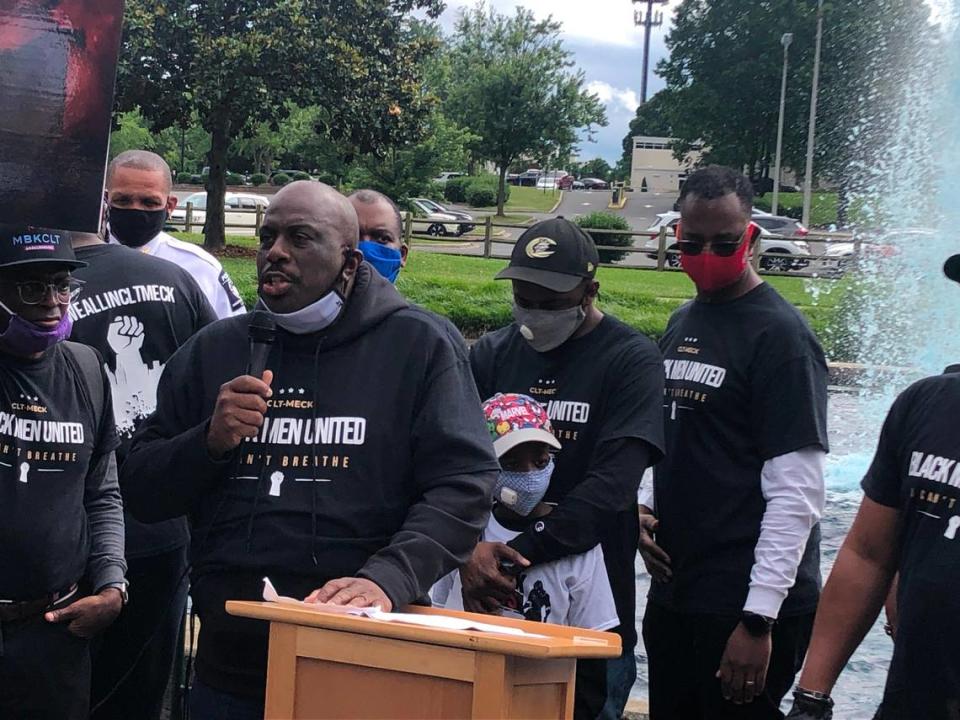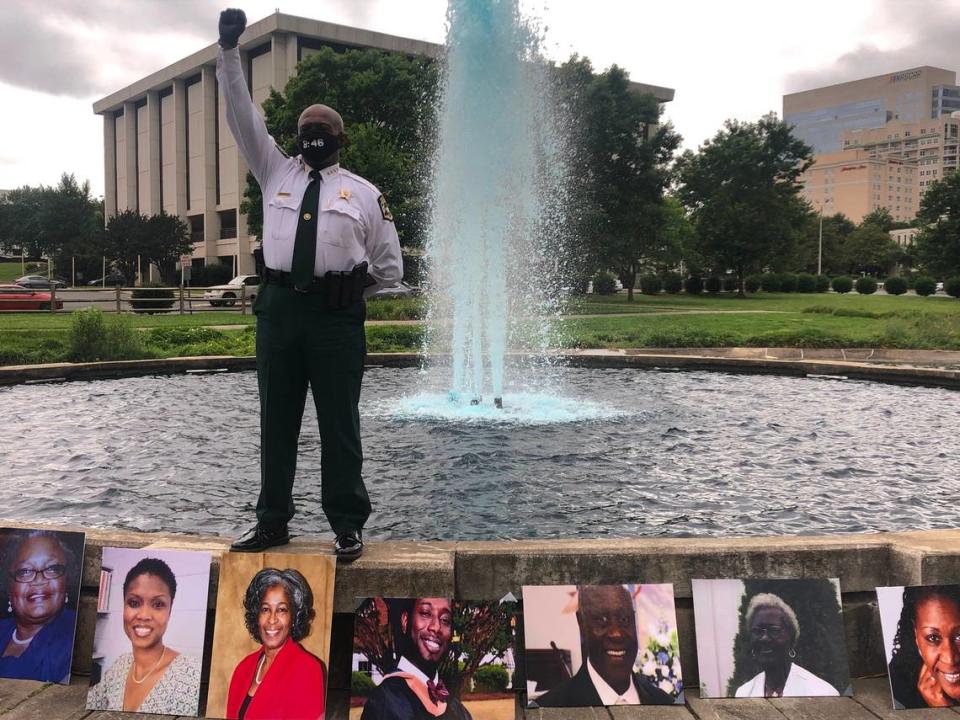‘We need change’: Charlotte Black leaders call for end to racism
On the fifth anniversary of a mass shooting at a Charleston, S.C., church, Black elected officials and community advocates called for an end to racism during a march through the streets of uptown Charlotte.
Wednesday’s Black Men United rally at Marshall Park was organized by a group of elected and community leaders, including Mecklenburg County Commissioner Mark Jerrell and council members James Mitchell and Malcolm Graham. It was the latest in three weeks of protests in Charlotte, sparked by the police killing of George Floyd in Minneapolis.
Mayor Vi Lyles read from a proclamation approved Wednesday by the Charlotte City Council, which declared racism a public health crisis.
“Racism unfairly disadvantages Black and Brown individuals and communities, while unfairly giving advantages to other individuals and communities,” the city’s proclamation reads, “and Charlotte’s collective prosperity depends upon the equitable access to opportunity for every resident.”
The declaration comes a day after Mecklenburg County commissioners issued a nearly identical proclamation.
Graham, whose sister was killed in the 2015 Charleston shooting at Emanuel AME Church, spoke out about systematic racism in an emotional speech. His sister, Cynthia Graham Hurd, was one of nine Black worshipers shot by a white supremacist during a prayer at the end of Bible study.
“She left in a stretcher because she was there, and because she was Black,” Graham said.

Graham pointed to the fact that the shooter, after his arrest in Shelby, about an hour from Charlotte, was brought to a Burger King.
“Even in his crime, he got white privilege,” Graham said.
He said he’s not sure if a Black man had gone to a church “and shot nine white folks, that he would have gotten a Burger King dinner and a car ride home.”
Graham said institutionalized racism within the police department was just part of the problem. He pointed to inequities in education, healthcare and housing.
“I don’t want to sing ‘We Shall Overcome’ one more damn time,” he said. “We’ve got to make something happen in Charlotte, and North Carolina, and across this country.”
Led by Graham, Jerrell, Mecklenburg County Sheriff Garry McFadden and other leaders, the crowd marched from Marshall Park down 3rd Street, chanting “Black Lives Matter.” They held signs displaying images of Black people who have been killed — Graham held one with his sister’s photograph.

They stopped at the Black Lives Matter mural on North Tryon Street, kneeling for 8 minutes and 46 seconds, in honor of George Floyd. Floyd was killed after a Minneapolis police officer knelt on his neck for that length of time. There, they sang “Lift Every Voice and Sing” — often referred to as the Black national anthem — before marching back to Marshall Park.
In an interview, Jerrell said the next step for the group he formed to organize the protest is to delve into policy solutions.
“I wanted to bring Black leaders together so that we can make sure that we lend our voices to the effort,” he said. “We need change. And we need it now.”

